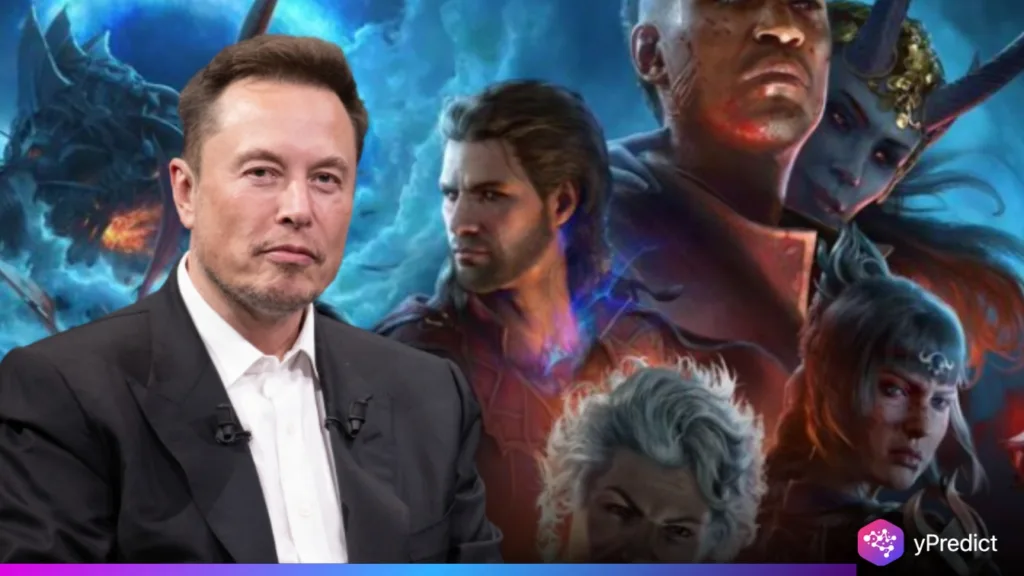
A post by @MarioNawfal on X at 05:21 IST, October 10, 2025, has reignited debate in the gaming world. The post highlights Michael Douse from Larian Studio criticizing Elon Musk’s plan for an xAI game studio. Douse said AI can’t fix the gaming industry’s real problems: weak leadership and poor creative direction. The irony? Larian Studio itself has faced heat for ideological choices in Baldur’s Gate 3. Nawfal’s post frames this clash as symbolic, human creativity versus AI-driven innovation. The question now is simple: can AI actually make better games, or does it just shift who calls the shots?
Human Creativity vs. AI Vision
Michael Douse’s remarks cut deep. The head of publishing at Larian Studio argued that AI won’t solve gaming’s leadership crisis. His point: tech isn’t the issue, humans are. Great games come from teams with vision, not algorithms. Yet, his own studio’s flagship RPG, Baldur’s Gate 3, has drawn backlash for blending social messaging into gameplay. Critics say Larian Studio blurred the line between storytelling and ideology.
Meanwhile, Elon Musk’s xAI project takes the opposite route. He wants AI-led games where players can shape characters and stories freely. Imagine an NPC that debates you mid-quest or shifts values as you play. Musk calls this “AI as agency,” claiming it removes political or cultural bias from design.
But Douse insists no model can replace emotional intelligence. He believes empathy, humor, and narrative rhythm can’t be generated. Nawfal’s post amplifies that tension: AI as creative freedom versus AI as soulless mimicry. For now, the gaming community is split. Some see Musk’s approach as bold. Others fear a future without the warmth of human touch that made Larian Studio successful in the first place.
The Irony Behind Larian Studio’s Critique
Here’s where it gets messy. Nawfal points out a contradiction. Larian Studio champions human-led art but gets accused of moralizing players. Baldur’s Gate 3 included progressive features, expanded romance options, identity settings, and diverse characters. Fans who wanted escapism felt boxed in. They didn’t want a lesson; they wanted an adventure.
So, when Larian Studio dismisses xAI’s creative experiment, many see irony. Musk says his games will skip “forced messaging” by using AI systems that respond only to player choices. His supporters claim that’s what modern gaming lacks: neutrality. It’s not about ideology, it’s about immersion.
But others push back. They argue Larian Studio’s design choices reflect inclusivity, not preaching. And their success, millions of copies sold, proves audiences still want human storytelling. Douse’s “AI can’t fix leadership” remark resonates with veteran developers who fear AI-driven games could flatten creative nuance.
In replies to Nawfal’s post, users like @O4SI5 and @HelloElara debate whether xAI will free or fracture gaming culture. Larian Studio sits right at the center, criticized for being too ideological, yet defending the humanity that AI can’t replace.
Conclusion
As of 11:52 AM IST, October 10, 2025, Nawfal’s post captures a defining industry rift. Larian Studio stands for human-led creativity, even amid criticism. Musk’s xAI bets on AI to restore freedom and choice. Both sides claim to protect “fun,” yet their visions couldn’t be more different. Whether players want human warmth or algorithmic unpredictability remains open. The coming year may decide the balance when xAI’s first game arrives and Larian Studio faces its next project. For now, one truth holds: the future of gaming depends on who tells the story, and how much humanity it keeps.






